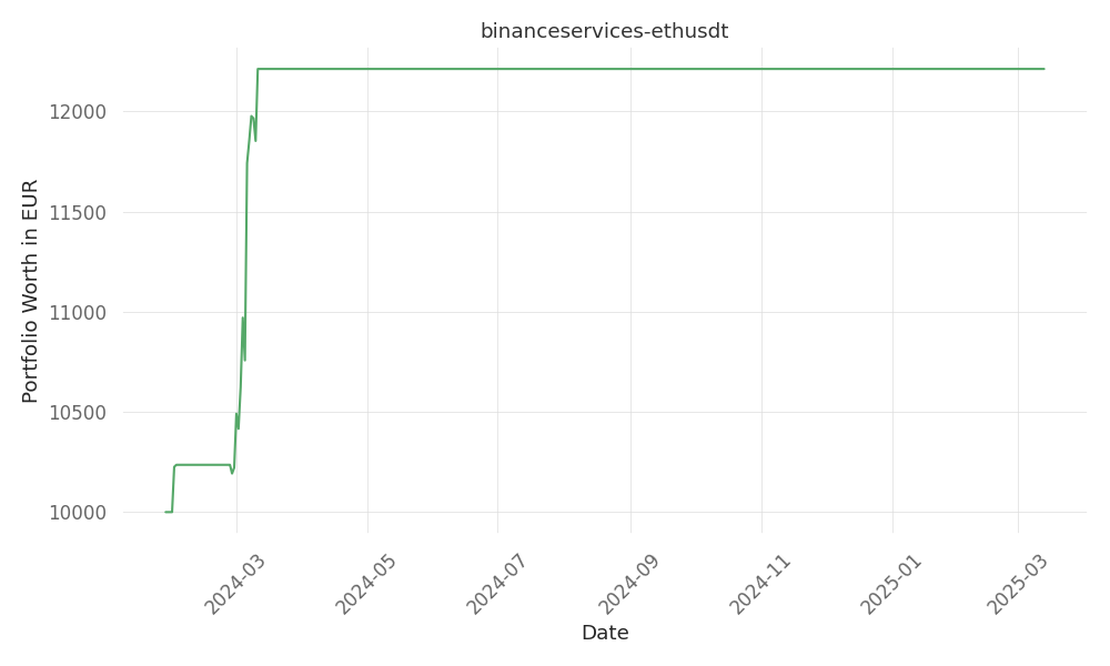
bt_headshoulder_sharpeopt_mixed
Introduction to our strategy no description yet Quick Summary Metric Value Return % p.a. -60 Days active 408 …

tickers: C
source: Motley Fool
| ticker | polarity | why? |
|---|---|---|
| C | positively | The sale of a significant portion of Berkshire Hathaway’s stake in Citigroup could potentially drive up the stock price, as it reduces the overhang of large institutional selling pressure. Additionally, the market might interpret this move as a positive sign for Citigroup, indicating that the company has made substantial progress and is now less dependent on Buffett’s backing. This could attract more investors, leading to increased demand and a higher stock price. |
Earlier this month, Warren Buffett and his company, Berkshire Hathaway, disclosed their quarterly stock holdings in a 13F filing. This disclosure is highly anticipated by investors who closely watch the moves of the Oracle of Omaha and his team. The filing revealed that Berkshire sold more stocks than it purchased, indicating a view that the market may be overvalued. One move that has drawn significant attention is the company’s decision to dump 73% of its stake in Citigroup, previously a top-20 position in Berkshire’s portfolio. Citigroup has made significant strides in improving its company, including a healthy dividend yield of roughly 3%. However, the company’s decision to sell off a large portion of its stake in Citigroup has raised questions about whether Berkshire made an untimely move.
Buffett and Berkshire have long been known for their investments in bank stocks. The recent sale of Citigroup marks a change in Berkshire’s strategy toward the banking sector, a sector that Buffett had largely supported in the past. This move came despite Citigroup’s significant transformational efforts and a cheap valuation.
Berkshire’s initial investment in Citigroup began in the first quarter of 2022, when the company purchased approximately 55.1 million shares at an average cost of about $53.40 per share. At the time of purchase, Citigroup was trading at about 68% of its tangible book value (TBV), a common metric used to evaluate the valuation of banks. Assuming Berkshire sold its position at an average stock price of $67.32 in the fourth quarter, this sale would have generated around 75% of Citigroup’s tangible book value, implying a significant rise in its cost basis for the sale hold investors were in the shares.
Jane Fraser, who took over as Citigroup’s CEO in 2021, has executed many strategic decisions to streamline the company’s operations. These include divesting various international consumer banking divisions and focusing on high-performing businesses. Fraser’s actions have resulted in a significant improvement in the bank’s capital allocation, allowing it to modernize and repurchase stock.
Buffett and Berkshire have generally favored input an investment of considerable periods, which might counter the philosophy of businesses. However, Berkshire’s significant sales in 2024, including parting with a considerable stake in Citigroup, suggest a pensive view toward the broader stock market and economic challenges, there future. Despite these external factors, Citigroup seems to be a viable option for long-term investors given its current improvements. Citigroup’s transformation efforts will offer gains even if form future restructuring plans go up.
While Berkshire’s appetite for Citigroup has historically been unrivaled, its recent decision to offload a significant portion of its stake in the company is the first step to ceasing Berkshire’s usual investment stratagics. Warren Buffett spent decades prior stepping away from and then finding share offers to buy stocks at the right time. The current move leaves analysts unsure about the mid-term stability, this is especially substantial because, in larger sizes, banks are historically integral to the economy.

Introduction to our strategy no description yet Quick Summary Metric Value Return % p.a. -60 Days active 408 …

Introduction to our strategy no description yet Quick Summary Metric Value Return % p.a. 19 Days active 410 …

Introduction to our strategy no description yet Quick Summary Metric Value Return % p.a. -85 Days active 427 …